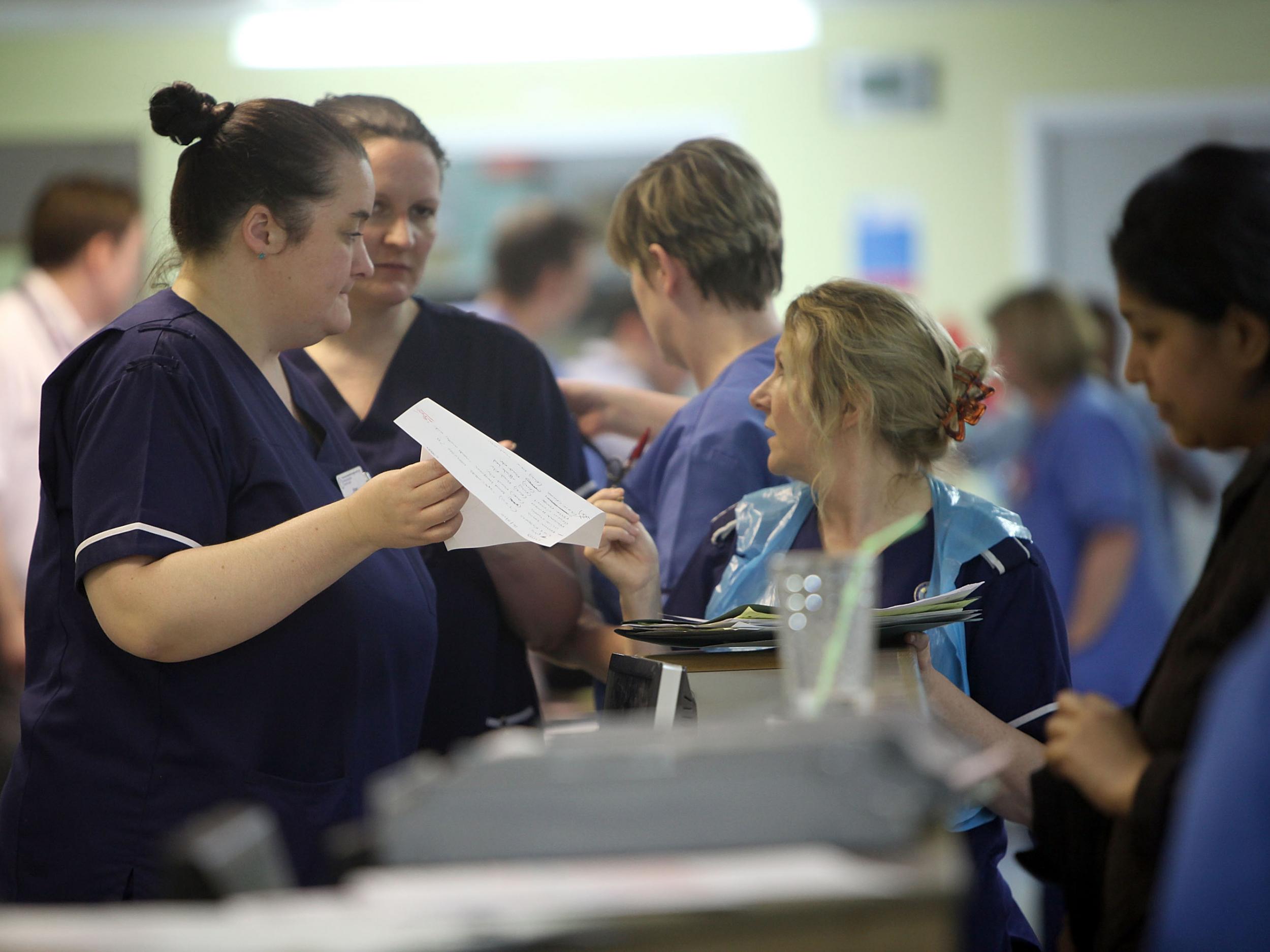One in five NHS hospital trusts ran out of beds in the first weeks of winter
Exclusive 18 per cent of hospitals have reported they have no spare beds on at least one day of winter

One out of every five NHS trusts has hit maximum capacity at least once already this winter, as seasonal illnesses and cold weather push bed availability in the health service to its limits.
The Independent’s analysis of the first two weeks of winter performance data found 18 per cent of trusts, 25 out of 137, have had one or more days with no spare beds.
In total, trusts have declared 100 per cent bed occupancy 99 times in 14 days.
One, North Middlesex University Hospital NHS Trust, has a total of 460 beds and in the two weeks of data has not had one day with any unoccupied.
The trust told The Independent it was experiencing a period of particularly high demand, but it was “monitoring the situation carefully”.
NHS Providers, which represents NHS trusts, said that it was worrying to see bed occupancy running so high so widely.
Many trusts are managing with just a handful of spare beds each day and national average occupancies increased again, to 99.6 per cent, in the second official week of winter.
Which trusts are hardest pressed for beds?
- North Middlesex University Hospital NHs Trust – 14
- Leeds Teaching Hospitals NHS Trust – 11
- James Paget University Hospitals NHS Foundation Trust / Walsall Healthcare NHS Trust – 10
- The Hillingdon Hospital NHS Foundation Trust – 8
- Barnsley Hospital NHS Foundation Trust /
Princess Alexandra Hospital NHS Trust - 7
Experts advise that routinely running above 85 per cent will lead to “bed crises” and increase the spread of hospital infections.
This appears to be being borne out, as there was a major jump in the number of beds unavailable because of norovirus, or diarrhoea and vomiting, outbreaks last week.
The figure nearly doubled, to 1,123 beds, which is the equivalent of a midsize hospital being unusable.
Despite this, NHS England programme to cut delays discharging patients into the community meant 1,000 more beds were available this year, and this will grow to 2,500 extra over the winter.
The figures start at the end of November, the same time Chancellor Philip Hammond announced in the Autumn Budget he would make an additional £335m available to hospitals to prepare for winter.
The NHS had previously asked for the £350m a week pledged by Brexit campaigners, and said an investment of at least £4bn was needed next year to return the NHS to an even keel.
The final deal amounted to less than half of that, but the funding has been given for the express purpose of tackling A&E and surgery waiting times.
But the data released today show performance in these areas is also under pressure.
Nearly 12,000 patients waited more than half an hour in an ambulance while space was found in A&Es last week, 2,337 waited more than an hour – an increase of 27 per cent on the week before.
While extensive planning by NHS bodies in the run-up to winter means that it is performing better relative to last year, despite record patient demand, performance against waiting time standards is again starting to slip.
Nearly a quarter of a million patients waited longer than four hours in November, an increase of roughly 20 per cent on October.
There were also increases in the number of delayed discharges, where patients are left in a hospital bed because they couldn’t be safely sent home, and the number of patients waiting more than 18 weeks for treatment.
A spokesperson for North Middlesex University Hospital said: “We are one of the busiest hospitals in the country and we are experiencing the usual winter pressure.
“We are monitoring the situation carefully and, as always, we will continue to put patient safety first.”
The head of analysis at NHS Providers, Phillippa Hentsch, told The Independent: “It is worrying to see bed occupancy running so high at this stage in the winter.
“NHS trusts will always do all they can to ensure patient safety and high quality care but this is more difficult when they are working under such intense pressure.”
Labour’s Shadow Health Secretary, Jonathan Ashworth, said the delays would be of “deep concern” to patients, adding: “Last week’s cold snap demonstrated in the starkest fashion that winter has arrived.
“Despite the pressures which all front-line NHS staff were warning of, the winter fund announced in the Budget has still not been fully allocated to struggling Trusts.
“Patients expect ministers to urgently get a grip.”
A Department of Health spokesperson said the NHS saw 2,800 more patients in A&E each day in November this year compared with November 2016.
“The NHS planned earlier than before to cope with this winter, supported by an additional £437m, which includes funding to make sure people going to A&E get directed to the right service for their needs, and an extra £1bn in social care funding this year to support our ageing population,” the spokesperson added.
Join our commenting forum
Join thought-provoking conversations, follow other Independent readers and see their replies
Comments
Bookmark popover
Removed from bookmarks